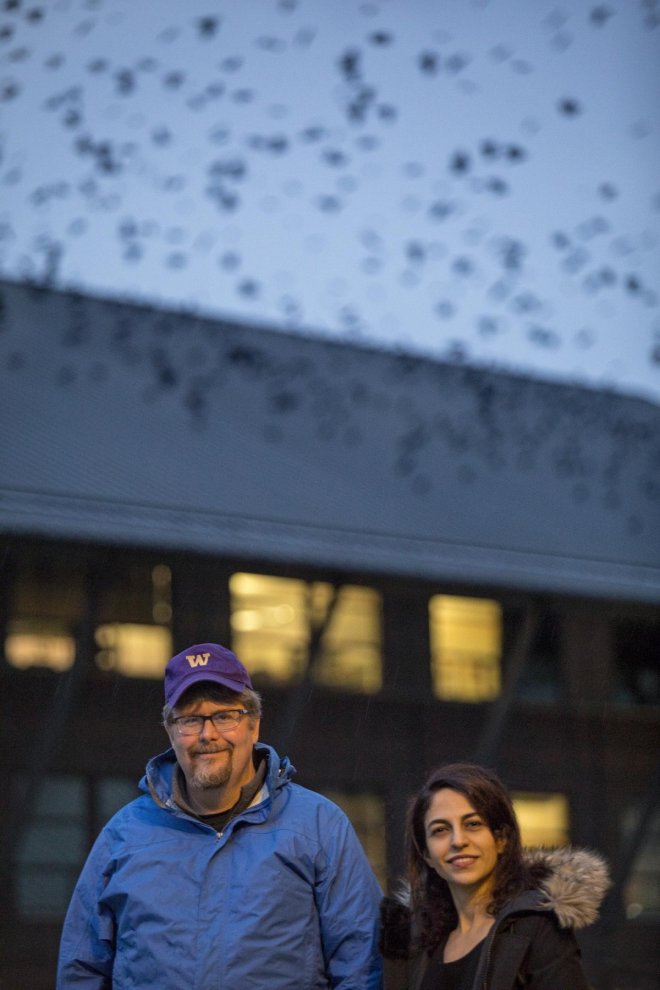Usually crows congregate on every dark winter's night, before and after sleep and they make noise that sounds like ruckus but researchers from the University of Washington, Bothell are determined to decipher it.
The campus-based researchers have hit their roof-tops and placed computerized eavesdropping wiretaps as thousands of crows meet there and sleep in nearby campus trees, to study the relationship between their calls and the birds' overall behavior.
"With audio alone, our team is able to localize and record the birds remotely, and in dim light that makes this situation less suitable for video tracking," said Shima Abadi of UW Bothell's School of Science, Technology, Engineering and Mathematics. "It's still a challenging task, but we can use the audio signals to look for patterns and learn more about what the birds communicating."
With her background in ocean acoustics, especially tracking whales, Abadi is keen to extrapolate it to track the local crow population with his undergraduate students.
"They're incredibly raucous, and make this cacophony every night, and people wonder: What are they saying? And that's a great question to ask on this campus," said Douglas Wacker, another assistant professor of biology at UW Bothell, evincing his interest in the new project.
Wacker, who did his Ph.D. on song sparrows, is keen to study the roughly 15,000 crows that migrate to the North Creek Wetlands on campus each evening in fall, winter and spring. Now Wacker and Abadi have jointly embarked upon the interdisciplinary project blending biology with acoustics.
But the problem is that crows are intelligent and they change their behavior if they think that humans are watching, or even if unfamiliar equipment is seen nearby, says Wacker. To overcome the problem, the undergraduate students have placed four audio recorders in a 10-foot square in a parking lot, and then placing a speaker playing a crow call in one of the quadrants.
The entire experience will be presented by Derek Flett, a senior undergraduate student in mechanical engineering, on Tuesday, Dec. 5 at the Acoustical Society of America's annual meeting in New Orleans.
"If a bee can do a dance to tell other bees where food is located, then certainly a highly intelligent bird -- in a family with other bird species that are capable of insight learning, recognizing themselves in a mirror, recognizing faces and passing that information on to subsequent generations -- could be capable of communicating complex information," Wacker said.










